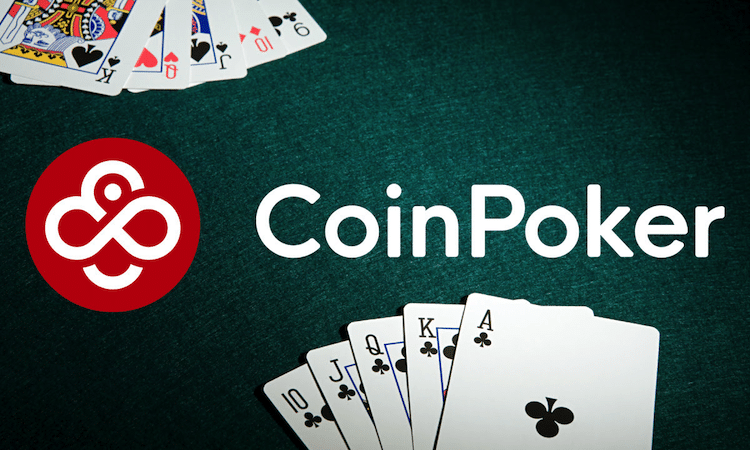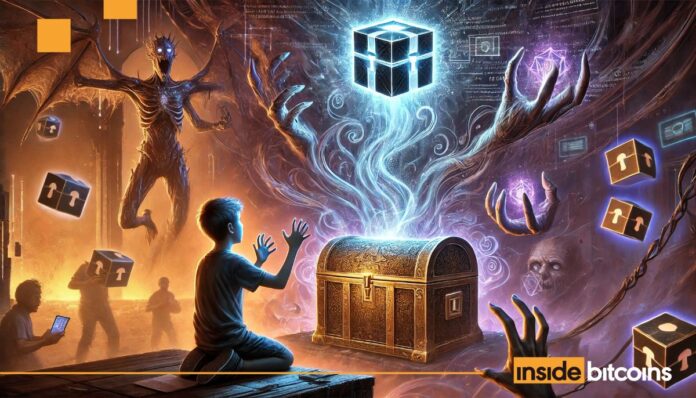The world of video gaming has undergone a dramatic transformation in recent years, with one feature stirring significant debate: loot boxes. These virtual containers, filled with randomized in-game rewards, have become a staple in modern games. While they offer excitement and customization, growing evidence suggests their mechanics might intersect with broader behavioral health concerns. Let’s explore what researchers, regulators, and industry stakeholders are saying about this evolving issue.
The Mechanics of Loot Boxes: A Modern Gaming Phenomenon
Loot boxes are digital treasure chests that players can earn through gameplay or purchase using real money. Inside, they contain randomized items ranging from cosmetic upgrades (like character outfits) to powerful tools that alter gameplay. Initially introduced as a way to reward player engagement, their monetization potential quickly made them a cornerstone of many games’ revenue models. Unlike traditional in-game purchases, where players buy specific items, loot boxes thrive on unpredictability—a design choice that has drawn comparisons to gambling.
Games like Overwatch 2 and FIFA 23 have popularized these mechanics, with some titles offering hundreds of loot box variations. While players often appreciate the thrill of unlocking rare items, critics argue that the randomness inherent to these systems can encourage repetitive spending, particularly among younger audiences.
Groundbreaking Study Reveals Behavioral Patterns
A 2025 international study published in Computers in Human Behavior examined over 1,400 adults who regularly engage in both gaming and gambling. The findings painted a striking picture:
96% of participants purchased loot boxes in the past year.
41% bought them more than once weekly, with 13% making four or more purchases per week.
Researchers from institutions like Flinders University and Nottingham Trent University noted that frequent loot box users exhibited behaviors mirroring those seen in problem gambling. For instance, participants often described a “rush” when opening boxes, followed by frustration when rewards didn’t meet expectations.
Professor Mark Griffiths, a co-author, emphasized that while the psychological ties to gambling aren’t identical, the overlap in risk factors—such as impulsivity and emotional dysregulation—warrants closer scrutiny.
Mental Health Connections: Anxiety, Depression, and Impulsivity
The study identified anxiety and depression as key factors influencing loot box engagement. For some, these purchases served as a coping mechanism during low moods, creating a cycle where temporary relief reinforced repetitive spending. Others reported heightened anxiety after overspending, particularly when loot box odds felt “unfair.”
Impulsivity emerged as another critical risk factor. Individuals with tendencies toward spontaneous decision-making were more likely to buy loot boxes frequently, especially when games employed time-limited offers or flashy animations to heighten urgency. Interestingly, the relationship between mental health and loot boxes appeared bidirectional: preexisting conditions like anxiety could exacerbate engagement, while excessive spending often worsened emotional distress.
Global Regulatory Responses: A Patchwork of Approaches
Governments worldwide have grappled with how to classify and regulate loot boxes:
Belgium took a hardline stance in 2018, declaring paid loot boxes illegal under gambling laws. This forced games like Overwatch and FIFA to remove purchasable boxes entirely.
The United Kingdom opted for industry-led safeguards. Following a 2023 government initiative, major publishers agreed to disclose loot box odds and let parents restrict children’s spending.
The European Union proposed stricter measures in 2024, including mandatory age verification via biometric checks and spending caps for minors.
Meanwhile, countries like Japan and the Netherlands have focused on “gacha” mechanics (a loot box variant), requiring odds disclosure and banning certain high-risk designs.
Industry Adaptations: Transparency and Parental Controls
Facing regulatory pressure, gaming companies have begun self-regulating. For example:
Blizzard Entertainment reintroduced loot boxes in Overwatch 2 but eliminated real-money purchases, relying instead on gameplay unlocks.
Riot Games phased out free loot boxes in League of Legends, citing economic sustainability concerns while introducing direct-purchase options.
Many platforms now feature dashboards where players can track spending, set monthly limits, or self-exclude from loot box systems—a nod to tools used in responsible gambling programs.
Protecting Vulnerable Players: Age and Accessibility
Minors remain a focal point in the loot box debate. A 2024 survey found that 68% of teenagers had opened a loot box, often without parental knowledge. Critics argue that bright colors and celebratory sound effects intentionally target younger audiences, normalizing risk-reward behaviors early in life.
To address this, consoles like PlayStation and Xbox now require account holders to enable loot box purchases manually, even if minors possess the devices. Educational campaigns have also emerged, teaching parents how to recognize in-game spending risks.
The Road Ahead: Balancing Innovation and Responsibility
Experts like Dr. Cristina Villalba-Garcia stress that regulation shouldn’t stifle gaming innovation but instead promote ethical design. Suggested measures include:
Universal odds disclosure, ensuring players understand their chances of receiving rare items.
Spending alerts that notify users when they exceed self-set budgets.
Research funding to explore long-term effects on adolescent brain development.
As virtual worlds grow more immersive, the conversation around loot boxes highlights a broader challenge: how to balance entertainment value with consumer protection in an increasingly digital age.

CoinPoker: Revolutionizing Online Poker with Blockchain Technology
CoinPoker is redefining the online poker landscape by harnessing the power of blockchain technology to establish a decentralized, transparent, and highly efficient gaming ecosystem. By addressing long-standing industry challenges such as slow payment processing, geographical restrictions, and the security vulnerabilities of centralized platforms, CoinPoker is creating a seamless and secure poker experience designed for the digital era.
A Blockchain-Powered Poker Platform for Security and Transparency
At the core of CoinPoker’s innovation lies its blockchain-based infrastructure, which ensures that every transaction and game outcome is securely recorded on an immutable distributed ledger. Unlike traditional poker platforms that require players to trust a central authority, CoinPoker eliminates the possibility of data manipulation or unfair practices. Every hand played and payout processed is independently verifiable, fostering an unparalleled level of transparency. Thanks to blockchain’s inherent security, transactions are processed instantly, reducing the risk of fraud and ensuring a smooth user experience.
Provably Fair Gaming with Blockchain Verification
Ensuring fair play is one of CoinPoker’s top priorities. In conventional online poker platforms, concerns about rigged algorithms and biased card distribution often arise. CoinPoker addresses these concerns head-on with its blockchain-powered random number generator (RNG), which guarantees provably fair gameplay. Every hand dealt is verifiable in real-time, providing players with the confidence that they are engaging in an authentic and unbiased gaming experience. This level of transparency attracts both casual players and professional poker enthusiasts, fostering a trustworthy and competitive environment.
Seamless Crypto Transactions with CHP
CoinPoker has developed its own native cryptocurrency, CHP (Chips), to facilitate transactions within the platform. Players can use CHP to buy into games, enter tournaments, and withdraw their winnings effortlessly. Beyond CHP, the platform supports major cryptocurrencies like Bitcoin and Ethereum, allowing for borderless transactions without the limitations imposed by traditional banking systems. With instant deposits and withdrawals, minimal transaction fees, and enhanced financial accessibility, CoinPoker provides a flexible and user-friendly payment solution for poker players worldwide.
Exciting Promotions and Rewarding Loyalty Programs
To keep players engaged and incentivized, CoinPoker offers a variety of promotions and loyalty rewards. From high-value freeroll tournaments and generous welcome bonuses to rakeback deals and leaderboard competitions, the platform ensures a dynamic and competitive gaming atmosphere. Holding CHP tokens comes with additional perks, such as exclusive tournament access and enhanced rewards. Seasonal events, special promotions, and VIP incentives further elevate the CoinPoker experience, making it an attractive platform for both newcomers and seasoned players.
A Thriving Community-Driven Ecosystem
Beyond its technical innovations, CoinPoker places great emphasis on community engagement. The platform continuously evolves based on player feedback, refining its features to meet user needs. Through active forums, social media interactions, and dedicated support channels, players can share strategies, exchange insights, and stay updated on the latest developments. High-profile poker ambassadors and influencers lend further credibility to CoinPoker, helping to spread awareness and draw attention to its forward-thinking approach.
Adapting to Regulatory Changes with a Commitment to Compliance
As the blockchain gaming industry continues to expand, regulatory bodies around the world are adjusting their frameworks to accommodate decentralized platforms. CoinPoker proactively aligns with these evolving regulations by maintaining a commitment to transparency, fair play, and security. By embracing compliance standards and prioritizing responsible gaming, CoinPoker is not only leading the way in blockchain-based poker but also contributing to the broader acceptance of decentralized gaming platforms.
Continuous Innovation and Future Expansion
With an unwavering commitment to technological advancement, CoinPoker is actively working to expand its offerings. Future plans include introducing new game formats, forming strategic partnerships, and leveraging the latest developments in decentralized technology. As blockchain adoption continues to rise, CoinPoker remains ahead of the curve, enhancing the security, fairness, and accessibility of online poker. Its dedication to user experience and innovation ensures that it will remain a dominant player in the online poker industry for years to come.
The Future of Online Poker Starts Here
For those seeking a cutting-edge online poker experience, CoinPoker delivers a blockchain-powered solution that prioritizes security, transparency, and user-centric design. Whether it’s instant cryptocurrency transactions, an engaged poker community, or an array of exciting promotions, CoinPoker is setting new standards in the industry.
Discover the next evolution of online poker—visit CoinPoker’s official website today and take part in the future of decentralized gaming.
Related News
Credit: Source link






















 Bitcoin
Bitcoin  Ethereum
Ethereum  XRP
XRP  Tether
Tether  Solana
Solana  USDC
USDC  Dogecoin
Dogecoin  Cardano
Cardano  Lido Staked Ether
Lido Staked Ether  TRON
TRON  Wrapped Bitcoin
Wrapped Bitcoin  Wrapped stETH
Wrapped stETH  Chainlink
Chainlink  Sui
Sui  Avalanche
Avalanche  Stellar
Stellar  Litecoin
Litecoin  Toncoin
Toncoin  Shiba Inu
Shiba Inu  LEO Token
LEO Token  Hedera
Hedera  USDS
USDS  MANTRA
MANTRA  WETH
WETH  Hyperliquid
Hyperliquid  Polkadot
Polkadot  Bitcoin Cash
Bitcoin Cash  Bitget Token
Bitget Token  Ethena USDe
Ethena USDe  Wrapped eETH
Wrapped eETH  Uniswap
Uniswap  Monero
Monero  NEAR Protocol
NEAR Protocol  WhiteBIT Coin
WhiteBIT Coin  Pepe
Pepe  Aave
Aave  Bittensor
Bittensor  Aptos
Aptos  Ondo
Ondo  Dai
Dai  Internet Computer
Internet Computer  Official Trump
Official Trump  Ethereum Classic
Ethereum Classic  Mantle
Mantle  Tokenize Xchange
Tokenize Xchange  OKB
OKB  Gate
Gate  sUSDS
sUSDS  Sonic (prev. FTM)
Sonic (prev. FTM) 
